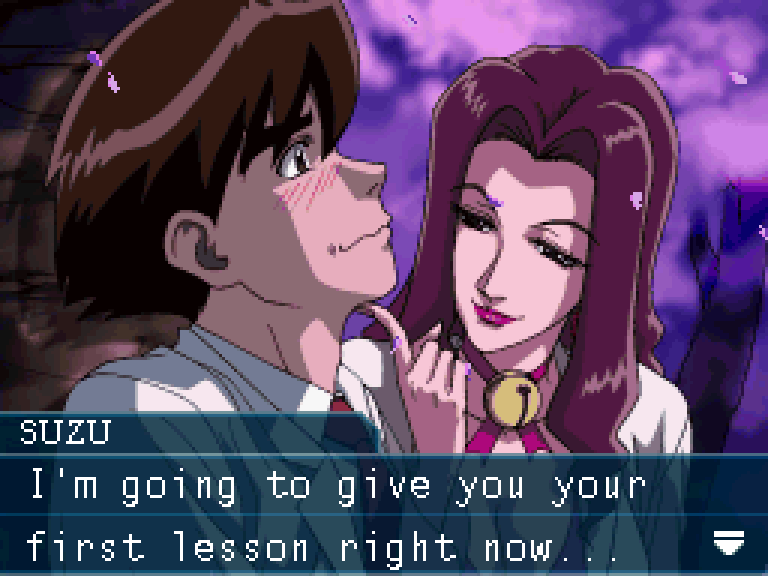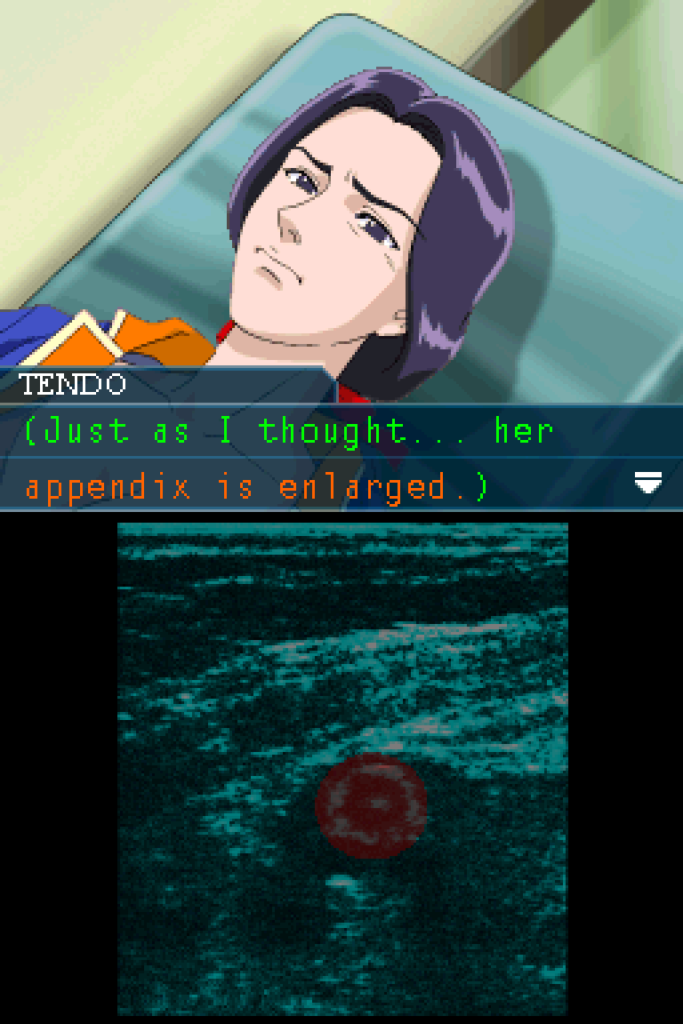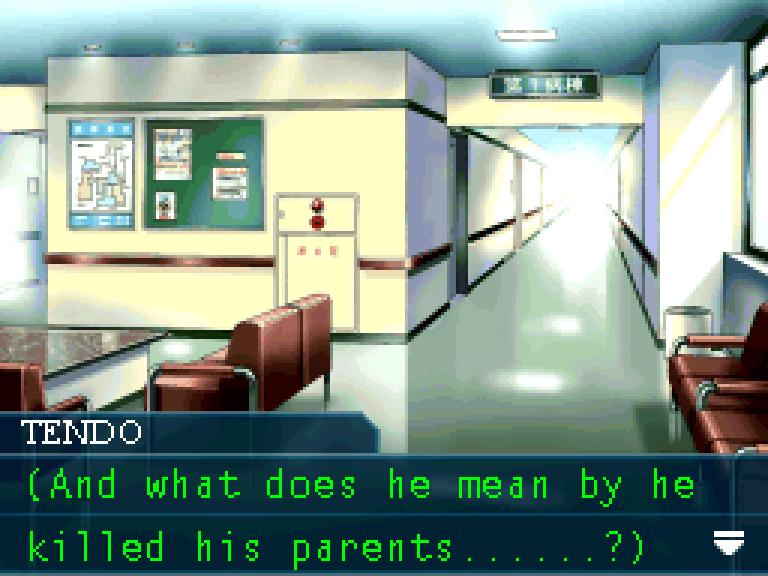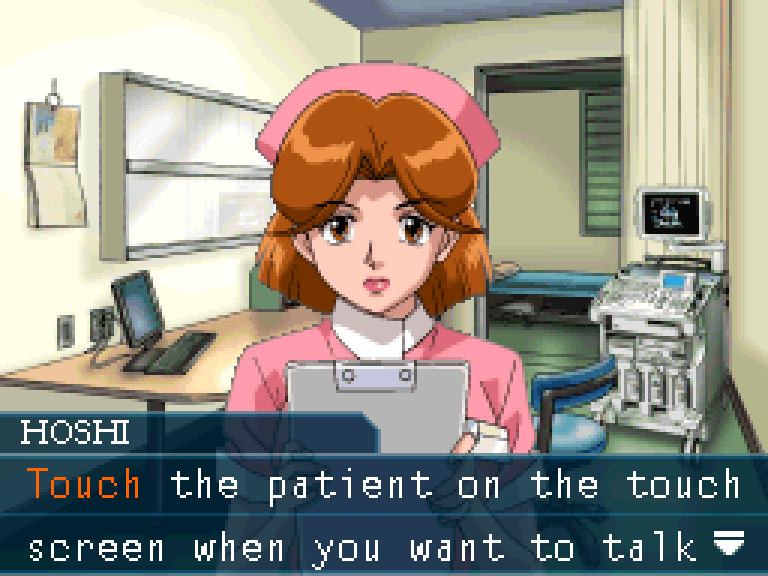Don’t Forget the DS: Lifesigns – Hospital Affairs
I will forget about the Nintendo DS and 3DS for months, even years at a time — but the moment I pick one of those two devices up I’m reminded of all the wonderful experiences I’ve ever had on those platforms. One of those experiences that I really want to share with you is the game Lifesigns: Hospital Affairs (also known elsewhere in the world as Lifesigns: Surgical Unit and Resident Doctor Tendo 2: The Scales of Life).
As the name suggests, Lifesigns (as we shall refer to it hereafter) is the second game in a series that first launched in Japan back in 2004. Don’t worry, though; while the original Resident Doctor Tendo game never saw an English language release, any references to the original game in Lifesigns are explained well enough that you don’t need to have played it.

In Lifesigns, you take on the role of the aforementioned Doctor Tendo, who works in a hospital. Do not come into this game expecting Trauma Center, however; many western publications mistakenly made this comparison when Lifesigns originally released, leading many to assume it was an inferior imitator to Atlus’ classic. What we have here is actually much closer to Capcom’s Ace Attorney series, only focusing on medicine rather than the legal profession.
In other words, you’ll spend the majority of your time in Lifesigns moving between various locations, triggering events and speaking to characters about various subjects and enjoying the unfolding storyline of the game’s five episodes. There’s also an overarching story to the whole thing, and your performance and choices throughout the five episodes will determine how the entire game concludes.
In the same way that Ace Attorney breaks up its adventure game/visual novel hybrid gameplay with the courtroom sequences, Lifesigns does the same with its medical mechanics. These take several different forms, including diagnosing a patient using various techniques and performing surgery when required. There are also other interactive sequences throughout; perhaps the most delightfully absurd thing about Lifesigns is that whether or not you get the best ending is at least in part determined by how well you cook takoyaki partway through the game.

It’s worth noting, however, that despite these “action” sequences — and for those who were stressed out by Trauma Center, don’t worry; the surgical sequences in Lifesigns are a tad more sedate for the most part — the majority of your time in Lifesigns will be spent talking to other people. This is a game where the narrative and characterisation are front and centre — and it’s a surprisingly ambitious game in this regard.
Like the Ace Attorney series, Lifesigns incorporates a combination of realistic characters and larger-than-life caricatures. A major part of the game involves the story of first-year intern Aoshima, for example, who, as a new doctor, finds herself struggling against the stressful, tiring and often thankless nature of working in medicine.
Elsewhere you’ll encounter hospital staff and patients alike who provide a means for the game to discuss a variety of surprisingly weighty issues, including strained familial situations such as single parenthood, androphobia, depression, suicidal thoughts and the cult of celebrity among teenagers. While the game originally released in 2005, all of these are just as relevant today as they were back then — perhaps even more so in many cases.

Pleasingly, the game doesn’t attempt to sugar-coat these issues, either; each of the game’s episodes can end in multiple ways, and some of these allow the game to proceed despite something “bad” happening. Because that’s the reality of life; sometimes people die despite the best efforts of medical staff, sometimes people just weren’t able to manage what was expected of them, and sometimes life simply isn’t fair. Interestingly, the game’s manual specifically makes a point of explaining that each episode has multiple endings, just in case someone playing “isn’t satisfied” with the conclusion to a particular case!
A good example of this comes at the end of the very first episode. Two emergency patients are brought in, both in critical condition. The way this turns out depends on a number of different factors: the way you have treated the other cast members earlier in the chapter, since their mental state and ability to stay calm under pressure will be affected by these past events, and your own ability to perform delicate procedures under tight time pressure. Keep your colleagues calm and treat the first patient within three minutes and everything turns out well. Fail to do any of these things and the story will still proceed — but someone will end up dead.
The interesting thing is that even if you “mess up” in some way, the game doesn’t feel like it’s punishing you for “failing”. Rather, it simply feels like a plausible alternative outcome, and the story being willing to acknowledge that in the world of medicine, things don’t always run smoothly. And on top of that, it makes the game very replayable; next time through, you’ll want to see if you can keep everyone safe.

The one feeling I was left with after playing Lifesigns for the first time all those years ago was a strong desire to see more medical drama games handled in a similar fashion. Trauma Center crazytown is a lot of fun, of course — but the rather more mundane, realistic complaints that form the backdrop to Lifesigns’ narrative were just as enjoyable to engage with thanks to the strong characterisation and interesting story that carried things along.
Sadly, we haven’t really seen anything quite like it ever since Lifesigns first came along — and even the Trauma Center series appears to be long dead at this point. So if this is an experience that sounds like it might appeal, I encourage you to bag yourself a copy of Lifesigns for Nintendo DS while you can — it’s quite unlike any other game I’ve played, and one of many reasons my DS devices will never leave my collection.
Thankfully, with this game being largely unknown, it’s still pretty cheap today! Nab a copy while you can!
Join The Discussion
Rice Digital Discord
Rice Digital Twitter
Rice Digital Facebook
Or write us a letter for the Rice Digital Friday Letters Page by clicking here!
Disclosure: Some links in this article may be affiliate links, which means we may earn a small commission if you make a purchase after clicking on them. This is at no additional cost to you and helps support Rice Digital!
- Letter from the Editor: passing the torch - June 30, 2023
- Super Woden GP 2 is looking promising - June 30, 2023
- Inti Creates is making a 32 bit-style Love Live action platformer - June 26, 2023







